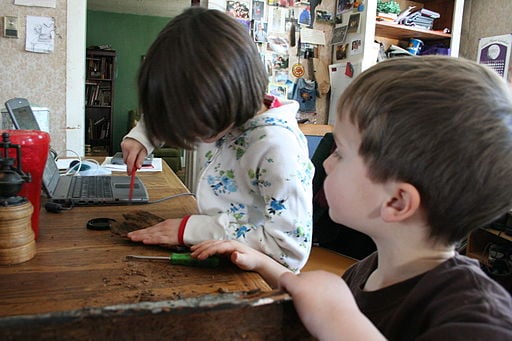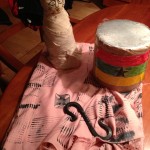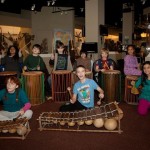 I brought the boys to Plimoth Plantation today with many hopes. For example, I hoped the boys would see how hard the Plimoth children worked and feel bad about the way they sigh when I ask them to pick up their coats. I suppose I could lie and say that I hoped the boys would be inspired by the industrious nature of their 17th century peers. But really I was just going for shame.
I brought the boys to Plimoth Plantation today with many hopes. For example, I hoped the boys would see how hard the Plimoth children worked and feel bad about the way they sigh when I ask them to pick up their coats. I suppose I could lie and say that I hoped the boys would be inspired by the industrious nature of their 17th century peers. But really I was just going for shame.
And why shouldn’t they feel like twits by comparison? Working in a hot, dark, smoky room, Pilgrim children turned the spit for hours while the meat cooked. They gathered berries for dyes and cattails for roofing. They baked bread, and carried water, and hung wash. They worked nearly as hard as the adults. Those Pilgrims made sure not to encourage any sinful idleness. Surely my boys would be impressed by how competent and helpful these kids were.
Pilgrims at Plimoth are played by actors, and all of the child actors must have been in school because there were no children in the village today. The only chore the boys saw was when they were invited to feed the cows – which they thought was a blast! So we left today with bracelets the boys made at the neighboring Wampanoag site and not one hint of remorse.
Well, that’s not quite right. I left rethinking my approach to childhood, and wondering if I am little too much like Cinderella’s stepmother.
We met a Wampanoag woman today who was working at the Native American homesite. (The Wampanoags are not actors, but Native people who can talk to you about both their history and they current lives.) This woman was there with her one-year-old and newborn. The baby was sleeping under a mound of fox hides, and her toddler was playing beside her as she cooked.
As we talked, I learned that Wampanoag children were primarily expected to play. The only work they had to do was to take turns sitting atop a stand to make noise and throw rocks at birds who were trying to destroy crops. They also learned how to hunt and fish and tan hides, but it wasn’t expected that they would take on real responsibility until they were well into their teens, when they said they were ready and wanted to do so.
Her son played happily and peacefully, navigating his way around the fire and in and out of the house. I could imagine him growing up to be a strong man who worked hard. He’d have to be. Raising and killing all your own food, making all your own clothing, housing, tools, boats, and jewelry is not for the lazy.
So why have I always assumed that if you don’t give children enough work to do, they will turn out to be lazy, entitled brats? And it’s not just my assumption, is it? Aren’t we raising an entitled nation of kids who won’t clean their own toilets, mow their own grass, or help old ladies cross the street?
What am I missing? And what am I to do? Is my problem that I expect too little or too much from the boys? Help me out, people. What is the real nature of childhood?











